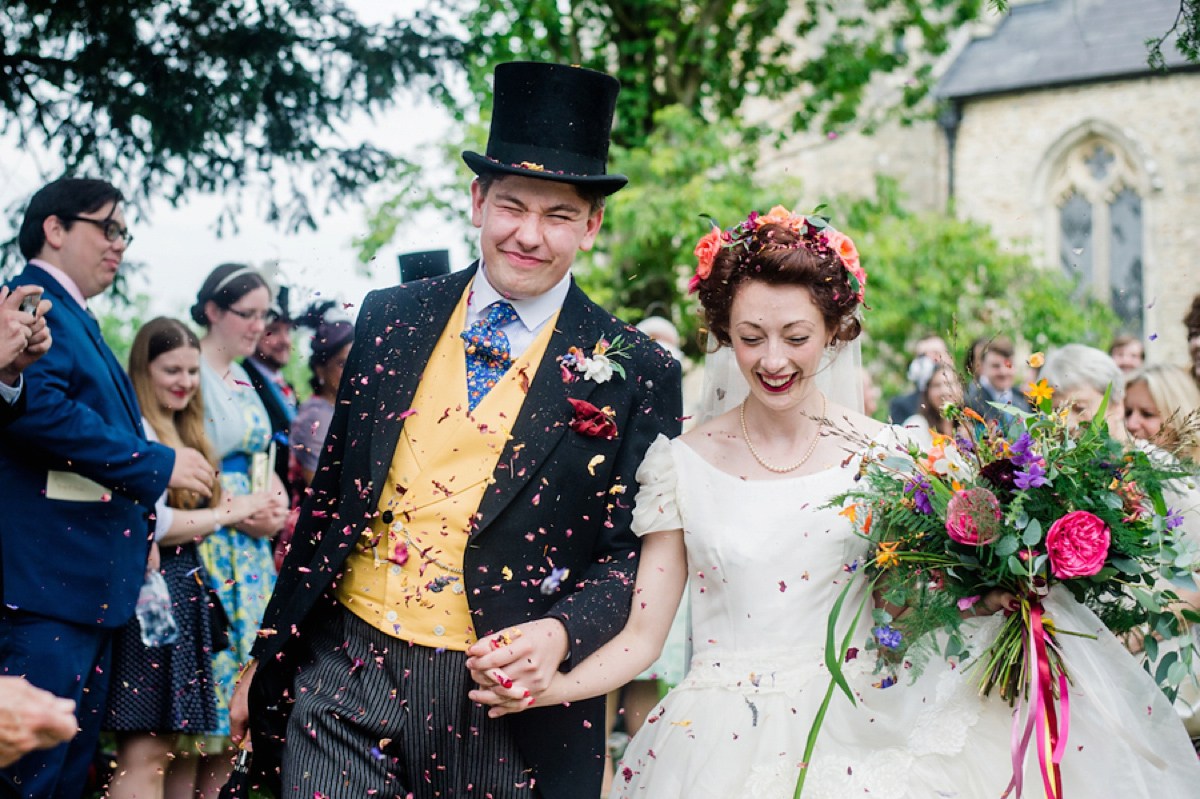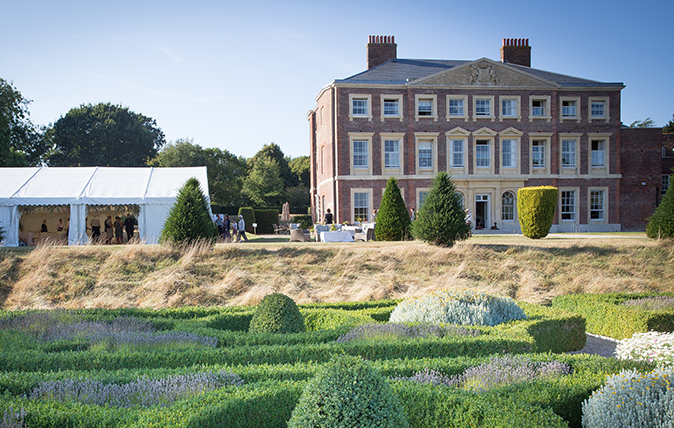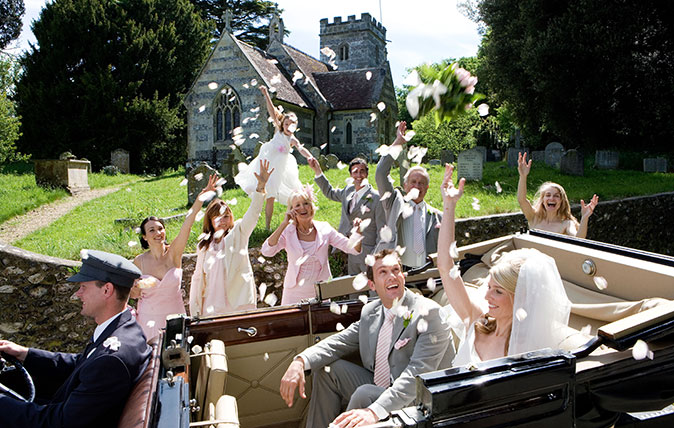An open letter to Meghan Markle, from one transatlantic bride to another
Carla Carlisle welcomes Royal bride Meghan Markle to the Anglo-American Sisterhood.


Dear Meghan,
Welcome to the AA Sisterhood – also known as the Anglo-American Sisterhood. Unlike the sisterhoods of your past – the best friends in your Catholic all-girls school, the sisters in your sorority at Northwestern University, your co-stars in Suits – this is a loose-knit sisterhood of free-born American women who are married to Englishmen.
Ours is a long tradition that began with the daughters of fortune – fabulously wealthy heiresses whose mothers guided their education and acquisition of languages and culture with the fastidious determination of orchid breeders. The prize was an English aristocrat, preferably a duke. Their mothers’ success was recognised by Edward VII, who observed: ‘American girls are livelier, better educated and less hampered by etiquette.’
Their intelligence and independent spirit was never their main appeal. The deal was this: rich American girls got titles and titled young aristocrats got dollars. We like to think that love came into it. I’m pretty sure that Cora Crawley (née Levinson), the Countess of Grantham in Downton Abbey, loved her husband, but it was three years after the large dowry tied to the marriage contract had saved his estate that the earl realised he loved his American wife.
I am the beneficiary of a more enlightened age. Although my husband might have some regrets (‘Your family has been in America 200 years and they don’t even have a chain of gas stations?’), he was tender-hearted about my dowry, which consisted of a labrador called Adam and an apocalyptic vision of the future of British farming. In my twenties, I set out to save the world. By the time I married, in my thirties, I was ready to narrow my lens and turn an ancient Suffolk estate into a hotbed of utopianism.
I am a late-20th-century bride. The 21st-century American wife is more likely to have an MBA from Harvard than a dowry. The marriage contract has been replaced by the pre-nup, both as hard on the fragile structure of married love as you can get.
Some things are the same. I met my future husband at a dinner party in Battersea, a meeting carefully plotted by friends. You met Harry on a blind date at Soho House, discreetly arranged by friends. Although a generation apart, we share the good luck of marrying Englishmen when the age of incomprehensible manners and mores of class is confined to costume dramas.
Exquisite houses, the beauty of Nature, and how to get the most from your life, straight to your inbox.
Well, almost. You will already have discovered that the crazy cousin locked in the attic in this country is ‘class’. Americans who marry Englishmen are spared much because it is difficult to ‘place’ us, but if America has never been as classless as it pretends, Britain has never been as rigid as its reputation.
Elizabeth Bennet was not of the same class as Mr Darcy – she cringes when her sisters and mother make that all too obvious – and in the fifth series of Downton, it was revealed that Cora is the daughter of a Jewish dry-goods millionaire from Ohio, but the venom still lurks.
A couple of weeks ago, I emailed The Times because every photograph of you announced the price of your shoes/coat/bag. My rant about anti-Royalist, class-ridden claptrap didn’t make the letters page, but the price tags have disappeared. Unfortunately, unless you take to wearing flour sacks, the politics of envy and price tags will be back. I hope you can ignore them.
Although you were born and raised in California and I was born in the Mississippi Delta, we both grew up in the shadow of Englishness. It begins with Peter Rabbit and The Wind in the Willows and leads to Pride and Prejudice. By the time I was 13, I had memorised The White Cliffs of Dover. I watched every episode on ‘Masterpiece Theatre’ and Upstairs, Downstairs; you’ve seen Downton Abbey and The Crown. As much as literature and Netflix may intrigue and inspire us, what really makes us who we are is rooted in our native soil.
You are a force of nature: a self-made, bi-racial woman, a graduate of a prestigious university, a successful actor whose passion for social justice has taken you all over the world. Your friends describe you as purposeful, loyal, life-loving and serious. You live in a global universe, but you’re the best of what is American.
I used to think that the good American wife became, well, rather English. She softened her voice and practised a subtle osmosis to enable her to blend in. I’ve never learned the rules of cricket, but I willingly practise an intelligent silence during a Test match. I don’t cry during Harrow songs – I cry during Amazing Grace, America’s best-loved hymn, written by an Englishman – and get tearful at God Save the Queen. But, more and more, I’ve accepted George Orwell’s belief that ‘it is only when you meet someone of a different culture from yourself that you begin to realise what your own beliefs really are’. That’s as true for Harry as it is for you.
I hope you will both stick to those beliefs because they come from the experiences that have made you who you are. They are the beliefs that you bring to each other, and they are greater than any dowry.
I’ll be watching the wedding here in Suffolk. I will cry when Sheku Kanneh-Mason plays the cello and when I hear the ancient vows.
This comes with admiration from your new sisterhood and every wish for a long life of married love and fun,
Carla

How to plan the perfect country wedding
Annabel Beeforth from Love My Dress gives her tips on how to pull off the perfect country wedding.

Country Life Top 10: Perfect wedding venues
Dreamy places to say 'I do'.

Credit: Alamy
Wedding myths debunked, and mysteries explained
Weddings are as chock full of myth and superstition as they are canapés and crazy relatives.
Country Life is unlike any other magazine: the only glossy weekly on the newsstand and the only magazine that has been guest-edited by His Majesty The King not once, but twice. It is a celebration of modern rural life and all its diverse joys and pleasures — that was first published in Queen Victoria's Diamond Jubilee year. Our eclectic mixture of witty and informative content — from the most up-to-date property news and commentary and a coveted glimpse inside some of the UK's best houses and gardens, to gardening, the arts and interior design, written by experts in their field — still cannot be found in print or online, anywhere else.
